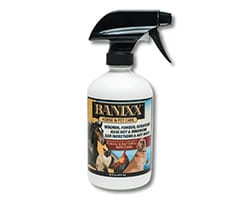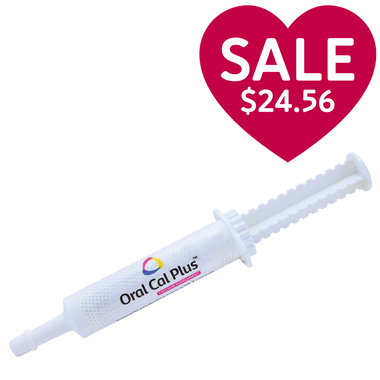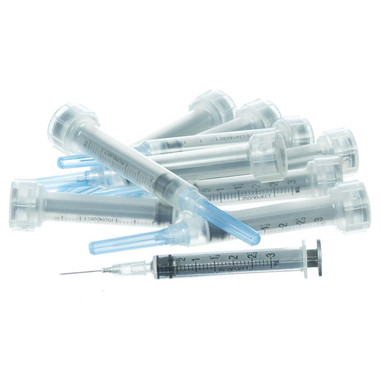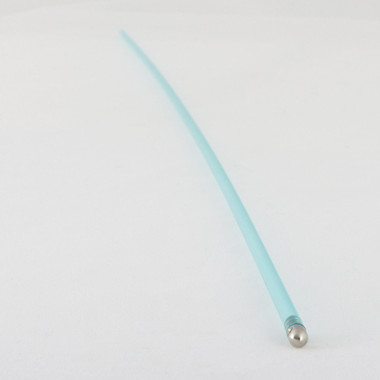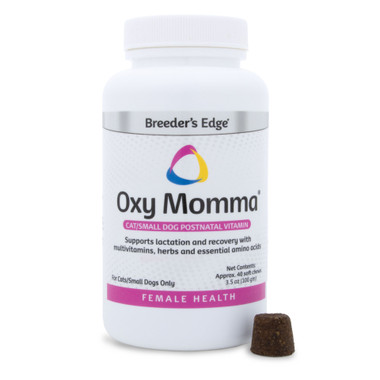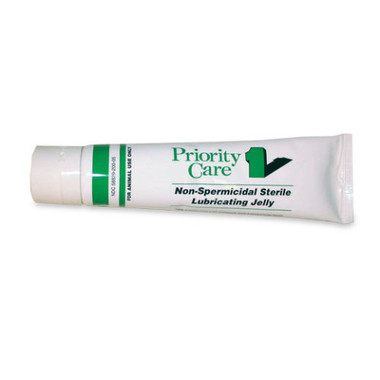Horse cribbing: Is there a way to stop it?
Estimated 0 min read
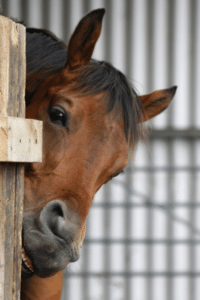
Horse biting stall door
Does your horse obsessively bite into a fixed surface, like a fence, stall door, bucket or feeder? Then does she suck in air and create a weird croaking noise?
That’s called “horse cribbing.” And it’s been an issue in the equine world for centuries. Only recently are scientists and horse experts beginning to figure out why a horse does it – and what to do about it.
A long time ago cribbing was considered an unsoundness. In 1889, a colt that cribbed was returned from Scotland to Belgium (no small journey) because it was deemed unsound as a ‘crib-biter’.
Interestingly, wild horses observed in the wild do not crib. Yep, we ‘caused’ it!
Read on to find out more:
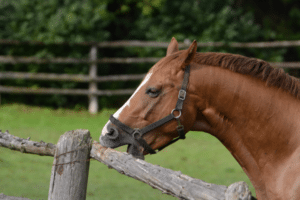
Horse cribbing to relieve stress
What isequine cribbing?
Cribbing is also known as “crib-biting” or “wind-sucking.” It’s a rhythmic, repetitive, apparently pointless behavior.Historically we thought was that horses cribbed to receive a high or euphoria but, new studies (which vary) suggest that horses crib for stress relief.
When your horse cribs, it grasps onto a fixed object (usually wood) with its front teeth.Thenit contracts its neck muscles and pulls back. This is usually accompanied with a grunting or gulping sound that sounds like it is sucking air.
Cribbing is behavior that happens in about 5-15% of horses. Most frequently these horses are Thoroughbreds (15%) and Arabians (6%). Standardbred horses seem to be able to avoid becoming cribbers, with an incidence of near 0%.
Unfortunately most horse lovers consider cribbing an unwelcome stable vice.As such, it can have a negative value on the monetary value of a horse. Some boarding stables will even refuse cribbers, as it can result in significant damage to their facilities.
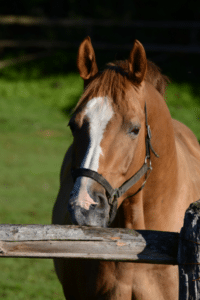
Bored horse biting fence
Why do horses crib?
The truth is, scientists, medical professionals and horse experts don’t have a solid explanation to explainequine cribbing.Whilethe cause remains elusive, they agree that there may be a number of different causes, including:
- Stress.This seems to be the #1 reason, as horses use cribbing to help them deal with intense or prolonged stress. You might think your darling leads a quiet domestic life in a nice barn and pasture.Butstresses might include being alone, weaning, and other frustrations.Sorather than being a “vice,” it’s a way to cope with stress.
- Boredom.Horses that spend long periods in stalls with limited turnout can be more prone to cribbing. Mental stimulation is important.
- Genetics.Researchers have suspected that at least part of the cribbing syndrome may be hereditary.However, they have not found specific genetic links, and there haven’t been enough studies to see if this theory is true. Some scientists believe that you should not breed a cribbing horse, for fear of passing on that genetic predisposition to its offspring.
- Gut issues.The microbiome is the ecosystem of microbes living in a horse’s gut. Researchers found that cribbers had a higher abundance of pathogenic (not good) bacteria in their feces. This could be the result of stress, which stimulates the adrenal gland to release cortisol into the blood and thus interfere with a healthy microbiome balance.
- Diet– High grain diet/low forage. Especially when this is started at a young age, this seems to increase the frequency of a young horse starting to crib.
Is cribbing related tohorse colic?
Cribbing horsesseem to be more prone to colic, especiallyepiploic foramen entrapment and colonic obstruction distension.Butonce again, researchers don’t know why. The connection to cribbing is unclear. In fact, does cribbing cause colic or does colic cause cribbing? Scientists are not sure.
Moreover, researchers are quick to point out that many cribbing horses never suffer with colic, while many non-cribbers may have frequent bouts. There’s still a lot to learn about colic, cribbing and gastrointestinal problems.
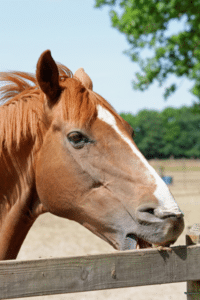
Is it all in their head?
Is “horse brain” caused by cribbing?
Dysfunction of dopamine, a neurotransmitter involved in learning, causes surges in the brain. This reinforces learning and habit formation. Stress interferes with dopamine release and can cause permanent physical changes in the brain. Scientists believe this might explain why cribbers rarely stop cribbing.
Scientists have also found thatcribbing horseswere significantly more sensitive to touch, due to their altered brains. This sensitivity could make them more likely to develop behaviors like cribbing to deal with chronic stress.
In addition, there’s a peptide called ghrelin produced in the stomach that can enter the brain. Ghrelin levels are higher in cribbing horses than non-cribbing ones. It regulates hunger, stress, anxiety, and more.
Despitethe “horse brain,” researchers have not found that cribbers are cognitively impaired. In fact, they seem to learn better when they’re cribbing, as the behavior reduces cortisol (the stress hormone).
How can it be treated or managed?
It’s very difficult to completely stop a horse from cribbing once he’s started.However, there are things you can to reduce and manage the behavior.
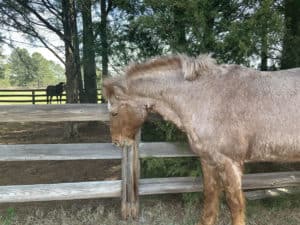
Socializing your horse may reduce cribbing
What’s the BEST way to curb cribbing?
- Check to make sure there’s no gastric discomfort.This may be the reason some horses start the cribbing behavior. Work with your vet to see if there’s a gastrointestinal issue and develop an appropriate diet.
- Reduce stress.Remove stressors that provoke the cribbing. These can include travel, changes to routine, separation from herd mates, and more. Also, reducing surfaces that horses can “latch’ onto is becoming a more popular practice.
- Increase turnout time.Horses who are confined to stalls and trained for performance careers often turn to cribbing. Get him outsidein a pasture so he can engage in natural grazing behavior.
- Increase social interaction.Provide amenable companions (another horse, goat, donkey..even chickens!). Note that studies have shown that cribbing is not “contagious” –soit’s safe to turn cribbers out with other horses.
- Maximize forage.Feed more hay or allow free-choice access to hay.Place a few flakes in different areas around the paddock so the horse has to move around more to get it.
- Provide a feed delivery source.Make your horse work a bit to get a small amount of feed more frequently.
- Reduce starch and sugar.If your horse needs more calories than he can get foraging, choose feeds with more fat and fiber. This tends to have a calming effect. Also, feed hay first, then grain.
- Add mental stimulation.Toys, treat balls and other interactive objects may help distract him from cribbing.
Among the least beneficial (because they don’t heal theunderlying caseof cribbing) are:
- Physical preventions.These include ahorse cribbing collar, strap, or muzzle. Make sure they fit properly to avoid rubbing on the head and face. Other items like hog rings and shock collars or fences are no longer recommended, as these “punishments” are usually not effective and can be cruel. In general, though, physical preventions are not always effective and can make the cribbing worse, because of the added stress.
- Surgery.Various surgical approaches have been tried, with inconsistent success. While some may decrease cribbing, long-term effectiveness is uncertain. And it raises some concerns about the welfare of the horse.
- Drugs.This may be an avenue to try, but you need to be especially careful about the side effects and toxicity.
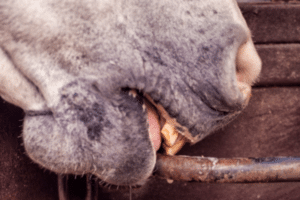
Cribbing can cause dental issues
Are there any other equine health concerns?
- Dental issues: Repeated cribbing can wear down the horse’s teeth prematurely.
- Weight loss: Some horses lose weight if their obsession means they’d rather crib than eat. If dental health isn’t good, they may also not forage properly.
- Overall poor body condition. Cribbers spend so much time in their behavior that they don’t get enough exercise.
- Development of abnormal neck musculature. If you’ve ever watched a horse crib, you can see what kind of stress it puts on the neck.
- Arthritis in the temporohyoid joint.This joint in located in the head behind the throat.
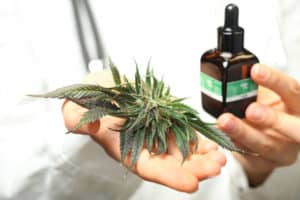
Consult with vet before givng CBD to your horse
What aboutCBD for horses?
Some horse owners have found that treatment with Cannabidiol (CBD) can be very effective in stopping cribbing. CBD acts on the central nervous system. It works on the serogtonergic and dopaminergic receptors in the brain to reduce anxiety.
Unfortunately, cannabis-derived veterinary medicinal products are not currently authorized for use in North America.However, your vet may be able to recommend certain human medicinal products for use in your horse.
Conclusion
The causes and treatment for cribbing are fully not understood,butit continues to be an active area of equine research. It’s clearly a behavior that a horse can’t help – and that a horse has trouble stopping.
The most important thing is to know that there are ways you can help reduce the behavior to keep your horse healthier and happier. It’s best not to expect perfection – a complete reversal rarely happens. In severe cases, some horses are just better off being allowed to crib.Butusing a combination of approaches designed specifically for your horse may lead to more successful management.
We hope that this short blog helps you understand the disease so that you can be on the defense for your horse’s health. Our large variety ofhorse blogscovers a myriad of equine questions: check us out! We cover more serious topics such asEPMorLyme Diseasebut then we also talk aboutEinstein, the World’s Tiniest Horse!Stay with us for more helpful or fun blogs!
Sources:
https://thehorse.com/1124690/whats-new-with-equine-cribbing-research/
https://ceh.vetmed.ucdavis.edu/health-topics/cribbing
https://www.petmd.com/horse/conditions/behavioral/c_hr_cribbing
https://equusmagazine.com/behavior/thinking-about-cribbing



